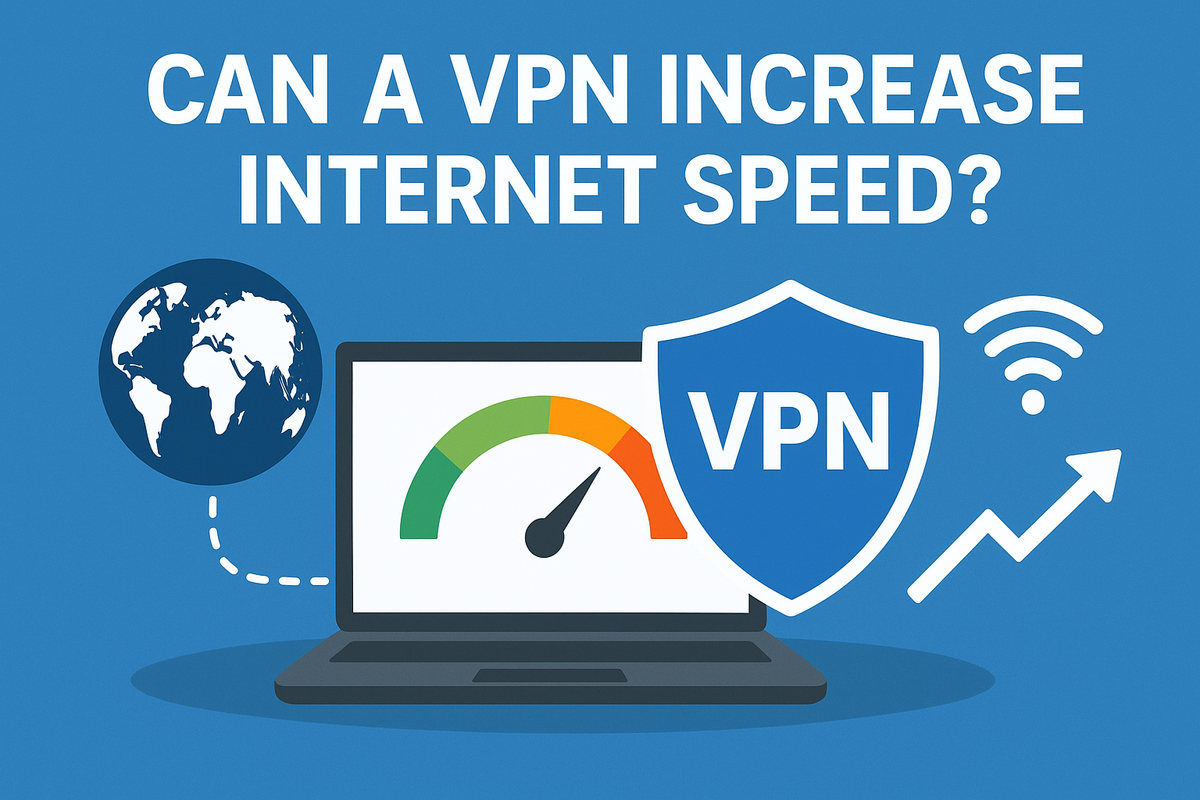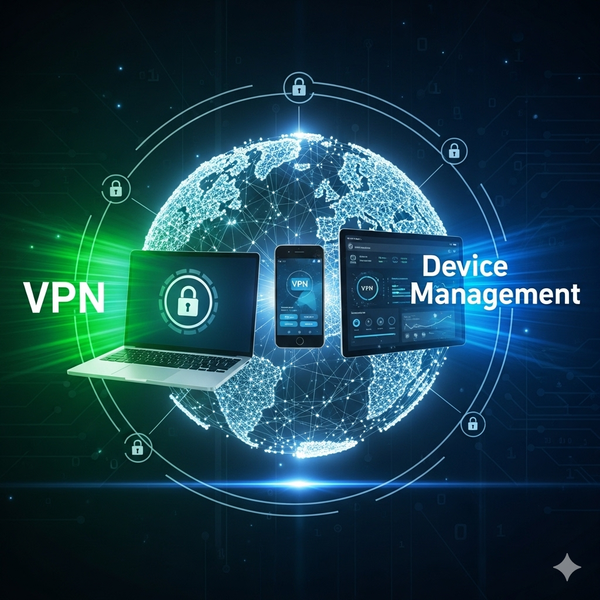Can a VPN Increase Internet Speed? The Truth About Boosting Your Connection

1. Introduction: Why Internet Speed Matters in 2025
In today’s hyper-connected world, internet speed isn’t just a luxury—it’s a necessity. Whether you’re streaming 4K videos, participating in remote meetings, or gaming online, a stable and fast connection makes all the difference. But as ISPs continue to throttle bandwidth and geo-restrictions block content, many users are asking: can a VPN increase internet speed? Surprisingly, the answer is often yes.
A VPN, or Virtual Private Network, was once thought of as just a tool for privacy, but it’s now becoming an essential part of optimizing your internet experience. With the right VPN, you can bypass network congestion, avoid ISP throttling, and even access faster servers worldwide.
If you’re tired of slow downloads or constant buffering, now is the perfect time to explore VPN solutions like VPN Winston. It’s a secure and powerful VPN that not only protects your data but also offers three days of free access, supports up to five devices on a single subscription, and unlocks websites that might be blocked in your region.
2. What is a VPN and How Does It Work?
To understand whether a VPN can increase internet speed, it’s important to first know how a VPN functions. A Virtual Private Network creates an encrypted tunnel between your device and a secure server located elsewhere in the world. When you connect to the internet through a VPN, your data traffic is routed through this server, hiding your IP address and making your online activity much harder to track.
Instead of your internet service provider (ISP) directly connecting you to websites or apps, the VPN acts as a middleman. This might sound like it would slow things down, but in many cases, the opposite happens. Here’s why:
- Avoiding ISP throttling: Many ISPs monitor network usage and slow down certain activities, such as streaming or gaming. A VPN hides this activity, making it difficult for your ISP to throttle your speed.
- Access to optimized servers: Some VPNs offer dedicated high-speed servers designed to handle heavy traffic, helping you bypass congested networks.
- Better routing: A VPN can help reroute your internet traffic through faster, less congested paths, especially when connecting to servers closer to your destination content.
The main takeaway is that a VPN doesn’t magically create more bandwidth, but it can optimize how your connection is handled. This is why users often report better speeds with a high-quality VPN.
If you’re looking for a practical way to test this, try VPN Winston. It provides a free 3-day trial, allowing you to connect up to five devices simultaneously and explore its performance without risk.
3. Can a VPN Increase Internet Speed? The Science Behind It
At first glance, the idea that a VPN can increase internet speed seems counterintuitive. After all, adding an extra step between your device and the internet should logically slow things down. However, modern internet infrastructure and ISP practices tell a different story.
One of the biggest culprits behind slow speeds is ISP throttling. Internet providers often monitor your traffic and deliberately limit your connection when you stream too much video, play online games, or use large amounts of bandwidth. This isn’t because your internet line can’t handle the load—it’s often about cost-saving measures or pushing you toward more expensive plans.
Here’s where a VPN comes in. By encrypting your traffic, a VPN prevents your ISP from seeing exactly what you’re doing online. As a result, they’re less likely to throttle your speed. With a quality VPN, you may even experience smoother video streaming, faster file downloads, and reduced buffering times.
Another factor is network congestion. When your ISP routes you through busy servers, your connection slows down. A VPN lets you connect to a different, often less congested route, reducing latency and improving your browsing experience.
In some cases, connecting to a VPN server that is physically closer to the content source can also speed things up. For example, if a website is hosted in Europe and you’re in Asia, connecting through a European VPN server could shorten the route your data travels, giving you a faster response time.
However, this only works with a high-quality VPN service. Not all VPNs are created equal; cheap or free ones may actually slow you down because they don’t have the server infrastructure to handle heavy traffic.
That’s why choosing a reliable service like VPN Winston matters. Winston VPN offers access to high-speed servers around the globe, protects your privacy, and gives you a risk-free 3-day trial. Plus, you can secure up to five devices under one subscription, making it a smart solution for families or those with multiple gadgets.
4. When a VPN Can Actually Make Your Internet Faster
While a VPN isn’t a magic button for unlimited bandwidth, there are very real situations where it can noticeably improve your connection. Understanding these scenarios will help you decide when and how to use a VPN to your advantage.
1. Bypassing ISP Throttling
Many internet service providers monitor your usage and slow down your connection when they detect high-bandwidth activities like HD streaming, torrenting, or online gaming. By encrypting your traffic, a VPN hides your activity, making it harder for ISPs to selectively throttle your speed. This often leads to a smoother, faster browsing experience.
2. Avoiding Network Congestion
If your ISP routes you through overloaded servers, your internet speed will drop even if you have a high-speed plan. A VPN allows you to manually choose a different server, potentially bypassing traffic jams and reducing latency.
3. Optimized Connections for International Content
Sometimes, content providers optimize their servers for specific regions. If you’re accessing a service or website hosted overseas, your connection might take a long, inefficient route. By selecting a VPN server closer to the content’s origin, you can shorten this route and experience faster load times.
4. Public Wi-Fi Performance
Public Wi-Fi networks are often slow because they’re overloaded and lack proper routing. A VPN won’t magically increase bandwidth, but it can help create a more stable connection by routing your data through optimized servers, especially if your ISP or network provider is limiting certain activities.
5. Reduced Packet Loss
High-quality VPNs often use optimized routing paths to minimize packet loss and jitter, improving gaming and VoIP performance. This means fewer lags, smoother calls, and a more reliable connection.
In all these scenarios, speed improvements heavily depend on the quality of your VPN provider. Free or cheap VPNs with poor infrastructure often slow you down because their servers are overcrowded. This is where premium services like VPN Winston stand out. Winston VPN gives you:
- A 3-day free trial to test speeds without risk.
- The ability to connect up to five devices under a single subscription.
- Access to blocked websites and services anywhere in the world.
- Strong encryption to protect your data without sacrificing performance.
When speed is crucial—whether you’re streaming in 4K, gaming, or working remotely—a well-optimized VPN can become a powerful tool.
5. Situations Where a VPN Might Slow You Down
While a VPN can increase internet speed in many scenarios, it’s important to be realistic: there are also situations where using a VPN might slow your connection. Understanding these cases will help you set the right expectations and choose the right VPN strategy.
1. Distance Between You and the VPN Server
If you’re connecting to a VPN server located far from your physical location, your data will have to travel a longer route. This can add latency and potentially reduce your speed. The key is to choose a server that is either close to you or close to the content you’re accessing.
2. Overcrowded Servers
Not all VPN providers have the infrastructure to handle large amounts of users. When too many people use the same server, speeds will drop. This is one of the biggest reasons why free VPNs are often slow—they simply don’t invest in enough servers to balance the load.
3. Device Limitations
If you’re using an older device with less processing power, encryption can slightly slow down performance. High-quality VPNs like VPN Winston use optimized protocols that reduce the impact, but weaker hardware might still struggle.
4. Weak Internet Connection
A VPN can optimize your connection, but it can’t fix a fundamentally weak internet plan or unstable Wi-Fi. If your baseline speed is already low, you may not see a noticeable improvement.
5. Poor-Quality VPN Providers
This is the single biggest factor that determines whether a VPN helps or hurts your speed. Low-quality services with limited server coverage, outdated encryption methods, or heavy advertising often create more problems than they solve.
That’s why choosing a trusted VPN provider is essential. Winston VPN, for example, was built with speed and stability in mind. With its 3-day free trial, you can test its performance risk-free and see if it helps optimize your browsing, streaming, or gaming experience. You’ll also get access to five device connections per subscription and unrestricted access to blocked websites, making it one of the most versatile VPN services available today.
6. Choosing the Right VPN for Speed and Security
Not all VPNs are built the same. If your goal is to increase internet speed while keeping your data secure, choosing the right VPN provider is essential. Here are the most important factors to consider when looking for a service that can truly optimize your connection.
1. Server Network Size and Location
The larger and more geographically diverse a VPN’s server network, the better your chances of finding a fast connection. Look for a provider with multiple servers in key regions, allowing you to bypass congestion and access content from anywhere.
2. Connection Speed and Bandwidth
Some VPNs have strict data caps or limit bandwidth, which directly impacts your browsing experience. A good VPN should provide unlimited bandwidth and maintain high-speed connections for streaming, gaming, and downloading.
3. Advanced Encryption Without Speed Loss
Strong encryption is essential for privacy, but poor implementation can slow down your connection. Modern VPNs use efficient protocols like WireGuard or IKEv2/IPSec to balance security with performance.
4. Device Compatibility
If you use multiple devices, it’s better to choose a VPN that supports simultaneous connections. Services like VPN Winston allow up to five devices under a single subscription, making it easy to protect your phone, laptop, tablet, and even your smart TV.
5. No-Logs Policy
Privacy is just as important as speed. A trustworthy VPN provider should have a strict no-logs policy, meaning they don’t store your browsing data or share it with third parties.
6. Ease of Use
A complicated interface can make VPNs intimidating for casual users. Look for a service with a clean, user-friendly app that makes it easy to switch servers and customize your connection.
7. Free Trial and Money-Back Guarantee
Many VPNs require a long-term commitment, but a reliable service will let you test its performance before you commit. Winston VPN, for instance, offers a 3-day free trial so you can see for yourself if it boosts your speed and gives you reliable access to restricted content.
A VPN is an investment in both speed and privacy. Choosing the right one ensures you get smoother streaming, faster downloads, and protection from ISP throttling without sacrificing your security.
7. Real-World Examples of VPN Speed Improvements
The question “can a VPN increase internet speed?” becomes clearer when we look at real-world scenarios. Many users have successfully boosted their connection speed by using a high-quality VPN service. Here are a few practical examples:
Example 1: Streaming Without Buffering
A frequent traveler in Asia reported that their favorite streaming service was constantly buffering when connected through their local ISP. After switching to a VPN server located closer to the streaming platform’s servers, they experienced smoother playback, even on HD content.
Example 2: Bypassing ISP Throttling
A gamer in the US noticed that their ping times would spike during evening hours. Their ISP admitted to implementing “network management policies” (throttling) to manage traffic. By encrypting their traffic with a VPN, they were able to bypass this throttling and enjoy stable gaming performance.
Example 3: Remote Work Speed Optimization
A remote worker connecting to servers in another country found that their corporate VPN was slow and unreliable. By first connecting to a premium VPN service with optimized servers, they reduced packet loss and improved file transfer speeds.
Example 4: Faster Downloads on Peer-to-Peer Networks
Peer-to-peer file-sharing users often face throttling from ISPs. In one case, a user reported download speeds tripling after switching to a VPN, as their ISP could no longer detect their activity and throttle their connection.
Example 5: Public Wi-Fi Stability
A student using a congested public library network found that using a VPN improved their browsing speed. While the overall bandwidth of the network didn’t increase, the VPN’s optimized routing minimized packet loss, resulting in faster page load times.
These examples show that a VPN’s impact on speed isn’t hypothetical—it’s backed by real results. For a practical test, try VPN Winston with its 3-day free trial and see the performance improvements yourself.
8. How to Test If Your VPN Increases Speed
If you want to see for yourself whether a VPN can increase internet speed, the best way is to run your own tests. Measuring your connection performance with and without a VPN gives you concrete data.
Step 1: Choose a Reliable Speed Test Tool
Use Speedtest.net, Fast.com, or Google Internet Speed Test to measure download speed, upload speed, and ping.
Step 2: Test Your Baseline Speed
Run multiple tests without a VPN to establish your standard connection performance.
Step 3: Enable VPN and Connect to a Nearby Server
Connect to a VPN server close to your location and repeat the speed tests.
Step 4: Try a Server Near Your Content Source
If you access content hosted internationally, connect to a VPN server near that location for potential speed improvements.
Step 5: Repeat During Peak Hours
Test during high-traffic periods to see if the VPN helps bypass throttling.
Step 6: Evaluate Real-World Performance
Test streaming, gaming, video calls, and downloads to see practical benefits.
Step 7: Experiment with Servers and Protocols
Services like VPN Winston offer multiple servers and protocols to optimize speed for your needs.
With VPN Winston, you can test all these scenarios with a 3-day free trial and enjoy optimized performance across five devices.
9. Additional Benefits of Using a VPN Beyond Speed
While many people are curious if a VPN can increase internet speed, it’s important to remember that a VPN offers much more than just performance improvements.
- Enhanced Privacy: Your browsing is encrypted, hiding your IP and activity.
- Security on Public Wi-Fi: Protects your data from hackers on unsecured networks.
- Access Blocked Websites: Browse geo-restricted or censored content freely.
- Avoid Price Discrimination: Potentially find better deals online.
- Remote Work Protection: Secure business communications and files.
- Stable Gaming Experience: Lower ping and reduced packet loss.
- Peace of Mind: Browse faster, safer, and unrestricted.
VPN Winston offers all these benefits plus five device connections and a 3-day free trial, making it ideal for anyone who values speed and security.
10. Why VPN Winston Is Your Best Choice
VPN Winston stands out as a premium VPN built for speed, security, and convenience:
- Optimized for Speed: High-performance servers minimize latency.
- Strong Security: Advanced encryption without slowing your connection.
- Global Access: Unblock websites and content worldwide.
- Five Device Connections: One subscription secures multiple devices.
- 3-Day Free Trial: Test performance and features risk-free.
- Easy to Use: User-friendly interface for instant connection.
- Complete Solution: No-logs policy ensures privacy and reliability.
Try VPN Winston today and experience faster, safer, and unrestricted internet.
11. Conclusion: The Smart Way to Use VPNs for Better Internet
So, can a VPN increase internet speed? Yes—especially when it helps bypass throttling, reduces latency, and optimizes routing. Combined with enhanced privacy, security, and access to blocked content, a VPN is no longer just a tool—it’s an essential part of modern online life.
With services like VPN Winston, you get speed optimization, security, global access, five-device coverage, and a 3-day free trial to test it yourself.
The smart way to use a VPN is to choose a high-quality provider, connect to the best server for your needs, and test it in real-world conditions. Doing so can boost your internet speed and elevate your online experience to a whole new level.


